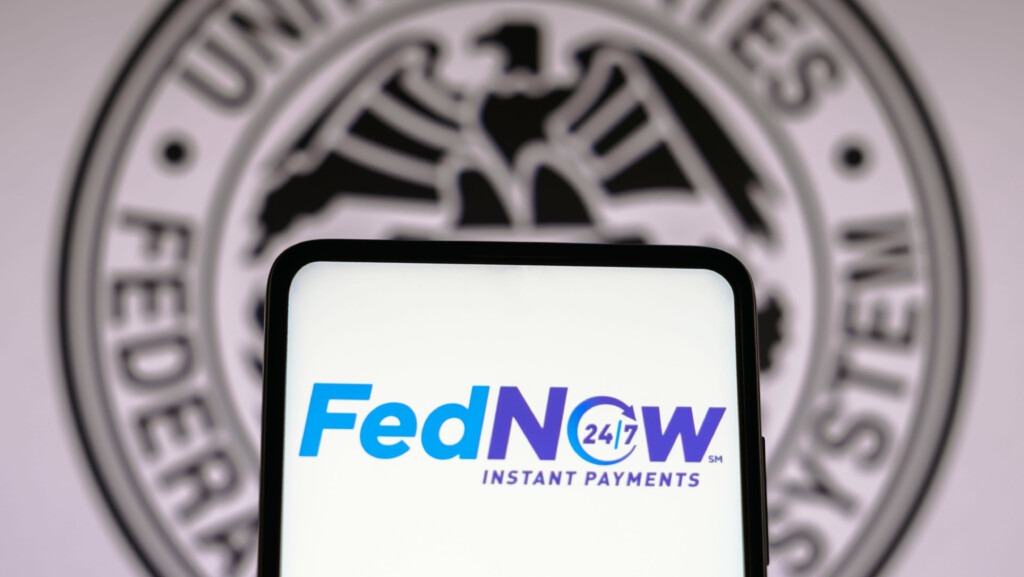APP Scam/Fraud Repayment In The UK Moves A Step Further
By SCARS Editorial Team – Society of Citizens Against Relationship Scams Inc., portions PSR
UK’s PSR Takes First Step In Implementing New APP Scam Refund/Reimbursement Requirements
Today, the United Kingdom’s Payment Systems Regulator (PSR) has published its consultation on two of its draft directions which are the legal means to put its new Authorized Push Payments APP scam reimbursement requirements in place. This marks the start of the regulator’s plans to implement new requirements that will see mandatory reimbursement for victims of APP scams.
In June, the regulator set out its requirements for tackling APP scams and improving protections for victims of these frauds. These include:
- New rules in Faster Payments – the payment system across which the vast majority of APP fraud currently takes place – strengthening Pay.UK’s ability to tackle fraud.
- All payment firms will be incentivised to take action, with sending and receiving firms splitting the costs of reimbursement 50:50.
- Customers will be more protected under consistent minimum standards, with most APP fraud victims being reimbursed within five business days and additional protections offered for vulnerable customers.
- Industry will have clearer guidance to follow, including around the ability to apply a claim excess and maximum level of reimbursement, which the PSR will consult on later this year.
The PSR said it would seek views on the legal means by which the new changes will be enforced and focuses on the detail of two of the three legal instruments.
The first requirement looks at the rule changes needed to be applied within the Faster Payments System (FPS) – which is how people can make a payment from one account to another. The second requirement focuses on making sure Pay.UK, the operator of the FPS, has an effective monitoring regime that will measure whether payment firms are consistently complying with the reimbursement requirements.
The PSR has also published the draft details of the general direction that will see all payment firms reimbursing victims of APP scams. This third direction will be consulted on separately in October.
The PSR wants these requirements to be in place for consumers as soon as possible and is proposing an implementation date of 2 April 2024. This is likely to be a challenging target for firms, and the PSR welcomes views on what is required for operational readiness but would not expect implementation to be any later than Q2 2024.
Chris Hemsley, Managing Director of the PSR says:
“This is a broad package of measures to tackle APP scams and protect victims of these frauds.
“Our directions will put clear requirements and incentives in place to not only ensure payment firms improve how they stop fraud, but also make sure victims are treated fairly.
“By consulting on these directions now, we are sending a clear signal that we are moving to implement these proposals as soon as possible.”
What Happens Next?
- In August the PSR will consult on the maximum level of reimbursement and claim excess and additional guidance on the customer standard of caution (gross negligence).
- In October, the PSR will consult on the draft general direction which will be given to all payment firms, requiring reimbursement for APP scams victims.
- By the end of 2023 the PSR will publish the claim excess and maximum level of reimbursement, additional guidance on the customer standard of caution (gross negligence) and all legal instruments.
- In 2024 the new reimbursement requirement will come into force.
Resources:
More:
- CP 23/4: APP fraud reimbursement requirement – draft legal instruments | Payment Systems Regulator (psr.org.uk)
- UK Identifies Meta As Responsible For 61% Of APP Fraud (scamsnow.com)
- Bank Account Takeover Fraud Can Happen To You! A Victim’s Story! (scamsnow.com)
- Walmart Facilitated Scams According To The FTC (scamsnow.com)
- A Proposal from SCARS to Reduce Bank Wire/Money Transfer Fraud (scamsnow.com)
- The Cost Of Global Cybercrime (scamsnow.com)
-/ 30 /-
What do you think about this?
Please share your thoughts in a comment below!
More ScamsNOW.com Articles
-/ 30 /-
What do you think about this?
Please share your thoughts in a comment above!
SCARS LINKS: AgainstScams.org RomanceScamsNOW.com ContraEstafas.org ScammerPhotos.com Anyscam.com ScamsNOW.com
reporting.AgainstScams.org support.AgainstScams.org membership.AgainstScams.org donate.AgainstScams.org shop.AgainstScams.org
youtube.AgainstScams.org linkedin.AgainstScams.org facebook.AgainstScams.org
ARTICLE RATING
TABLE OF CONTENTS
META
CATEGORIES
MOST POPULAR COMMENTED ARTICLES
POPULAR ARTICLES
U.S. & Canada Suicide Lifeline 988
![NavyLogo@4x-81[1]](https://scamsnow.com/wp-content/uploads/2025/04/NavyLogo@4x-811.png)
WHAT PEOPLE ARE TALKING ABOUT
LATEST SITE COMMENTS
See Comments for this Article at the Bottom of the Page
on Vulnerability to Scams Caused by Past Relationships is Like a River Running through Your Life Cutting Channels – 2025: “My big take away from this article is that there are many layers to my vulnerability. Yes, losing my Mom…” May 8, 11:43
on Hate for Scammers and Criminals Feels So Good But is So Bad for Scam Victims – 2025: “As stated here it feels like it should be justified – to hate them. I never did feel that way,…” May 6, 17:32
on Scam Victims Suppressing Trauma Or Avoiding Recovery And Healing 2024: “This is a great article that will, hopefully, help when I am avoiding facing my emotions/triggers. Recognizing the signs and…” May 6, 16:47
on SCARS 5 Coping Techniques For Traumatized Scam Victims – 2023: “One of the best ways of coping for me has been to reconnect with my friends. I self-isolated for months…” May 6, 16:07
on Trauma Recollection/Traumatic Flashbacks And Scam Victim PTSD – Recovery Psychology – 2023: “I don’t feel like my trauma can be described as PTSD. The affects after the scam ended were severe anxiety,…” May 6, 15:55
on Selective Amnesia and Scam Victim Psychological Trauma 2023: “This was a very interesting article to me. I have not experienced selective amnesia in relation to the scam. However,…” May 6, 15:39
on Psychological Triggers/Emotional Triggers – What They Are And How They Work – 2023/2024: “Not long after my scam ended, I needed to go to the grocery store. It never crossed my mind that…” May 6, 14:48
on Learning And The Challenges That A Scam Victim Faces From Trauma And Related Cognitive Effects – 2024: “My cognitive impairment was bad right after my scam. However, I have now noticed that it was especially bad during…” May 6, 14:23
on Hate for Scammers and Criminals Feels So Good But is So Bad for Scam Victims – 2025: “This is all true and valid. I had to forgive myself first for trusting my abuser because he hurt my…” May 6, 10:08
on Nirvana and the Path to Letting Go of Suffering – 2025: “En mi experiencia podría describir el nirvana en mi recuperación como ese estado de paz profunda y liberación emocional que…” May 5, 18:58
on The Prodigal Son or Daughter – Returning ‘Home’ After the Scam – 2025: “It’s true that the judgment of others does not define my path but if after “coming home” those closest to…” May 5, 13:21
on Beginning Again and Scam Victim Recovery -2025: “Taking action is the first step to recovery and I am doing that and becoming a newer stronger version of…” May 5, 09:53
on Beginning Again and Scam Victim Recovery -2025: “In order not to let this deception define me, since its discovery I have been ACTING.” May 5, 07:22
on The Butterfly Effect And Scam Victims – 2024: “Very good and interesting analogy to the Butterfly Effect and how it pertains to scams. In my crime I can…” May 4, 14:51
on Faith And Why It Matters In Scam Victim Recovery – 2024: “This is a good article giving examples of the difference between faith in oneself and one’s core values – to…” May 4, 13:37
on Reclaiming Your Worth: A Scam Survivor’s Guide to Navigating Your Worthiness After a Scam – 2023: “As an individual I process my emotions slowly whether it is shock, trauma, anger, disbelief. In the cycle of recovery…” May 4, 12:54
on The Stain that Never Goes Away After a Romance Scam for Scam Victims – 2025: “Thank you for sharing this important step on recovery” May 4, 12:09
on Metanoia – The Transformation for Traumatized Scam Victims – 2025: “Excelente articulo!!!… Después de superar la estafa podría describir la metanoia en mi propia experiancia como un renacimiento interior, una…” May 4, 00:24
on Philosophy of Life Planning – From Chaos to Order and the Scam Victim Recovery Path Forward – 2025: “Seeking justice is, unfortunately, not justice. Anger and revenge is not justice either. Recovery is justice. The only justice for…” May 3, 21:16
Important Information for New Scam Victims
Please visit www.ScamVictimsSupport.org – a SCARS Website for New Scam Victims & Sextortion Victims
SCARS Institute now offers a free recovery program at www.SCARSeducation.org
Please visit www.ScamPsychology.org – to more fully understand the psychological concepts involved in scams and scam victim recovery
If you are looking for local trauma counselors, please visit counseling.AgainstScams.org
If you need to speak with someone now, you can dial 988 or find phone numbers for crisis hotlines all around the world here: www.opencounseling.com/suicide-hotlines
Statement About Victim Blaming
Some of our articles discuss various aspects of victims. This is both about better understanding victims (the science of victimology) and their behaviors and psychology. This helps us to educate victims/survivors about why these crimes happened and not to blame themselves, better develop recovery programs, and help victims avoid scams in the future. At times, this may sound like blaming the victim, but it does not blame scam victims; we are simply explaining the hows and whys of the experience victims have.
These articles, about the Psychology of Scams or Victim Psychology – meaning that all humans have psychological or cognitive characteristics in common that can either be exploited or work against us – help us all to understand the unique challenges victims face before, during, and after scams, fraud, or cybercrimes. These sometimes talk about some of the vulnerabilities the scammers exploit. Victims rarely have control of them or are even aware of them, until something like a scam happens, and then they can learn how their mind works and how to overcome these mechanisms.
Articles like these help victims and others understand these processes and how to help prevent them from being exploited again or to help them recover more easily by understanding their post-scam behaviors. Learn more about the Psychology of Scams at www.ScamPsychology.org
SCARS INSTITUTE RESOURCES:
IF YOU HAVE BEEN VICTIMIZED BY A SCAM OR CYBERCRIME
♦ If you are a victim of scams, go to www.ScamVictimsSupport.org for real knowledge and help
♦ Enroll in SCARS Scam Survivor’s School now at www.SCARSeducation.org
♦ To report criminals, visit https://reporting.AgainstScams.org – we will NEVER give your data to money recovery companies like some do!
♦ Sign up for our free support & recovery help by https://support.AgainstScams.org
♦ Join our WhatsApp Chat Group at: https://chat.whatsapp.com/BPDSYlkdHBbDBg8gfTGb02
♦ Follow us on X: https://x.com/RomanceScamsNow
♦ Follow us and find our podcasts, webinars, and helpful videos on YouTube: https://www.youtube.com/@RomancescamsNowcom
♦ SCARS Institute Songs for Victim-Survivors: https://www.youtube.com/playlist…
♦ See SCARS Institute Scam Victim Self-Help Books at https://shop.AgainstScams.org
♦ Learn about the Psychology of Scams at www.ScamPsychology.org
♦ Dig deeper into the reality of scams, fraud, and cybercrime at www.ScamsNOW.com and www.RomanceScamsNOW.com
♦ Scam Survivor’s Stories: www.ScamSurvivorStories.org
♦ For Scam Victim Advocates visit www.ScamVictimsAdvocates.org
♦ See more scammer photos on www.ScammerPhotos.com
You can also find the SCARS Institute on Facebook, Instagram, X, LinkedIn, and TruthSocial
Psychology Disclaimer:
All articles about psychology and the human brain on this website are for information & education only
The information provided in this and other SCARS articles are intended for educational and self-help purposes only and should not be construed as a substitute for professional therapy or counseling.
Note about Mindfulness: Mindfulness practices have the potential to create psychological distress for some individuals. Please consult a mental health professional or experienced meditation instructor for guidance should you encounter difficulties.
While any self-help techniques outlined herein may be beneficial for scam victims seeking to recover from their experience and move towards recovery, it is important to consult with a qualified mental health professional before initiating any course of action. Each individual’s experience and needs are unique, and what works for one person may not be suitable for another.
Additionally, any approach may not be appropriate for individuals with certain pre-existing mental health conditions or trauma histories. It is advisable to seek guidance from a licensed therapist or counselor who can provide personalized support, guidance, and treatment tailored to your specific needs.
If you are experiencing significant distress or emotional difficulties related to a scam or other traumatic event, please consult your doctor or mental health provider for appropriate care and support.
Also read our SCARS Institute Statement about Professional Care for Scam Victims – click here
If you are in crisis, feeling desperate, or in despair, please call 988 or your local crisis hotline.
More ScamsNOW.com Articles
A Question of Trust
At the SCARS Institute, we invite you to do your own research on the topics we speak about and publish. Our team investigates the subject being discussed, especially when it comes to understanding the scam victims-survivors’ experience. You can do Google searches, but in many cases, you will have to wade through scientific papers and studies. However, remember that biases and perspectives matter and influence the outcome. Regardless, we encourage you to explore these topics as thoroughly as you can for your own awareness.















![scars-institute[1]](https://scamsnow.com/wp-content/uploads/2025/04/scars-institute1.png)
![niprc1.png1_-150×1501-1[1]](https://scamsnow.com/wp-content/uploads/2025/04/niprc1.png1_-150x1501-11.webp)
